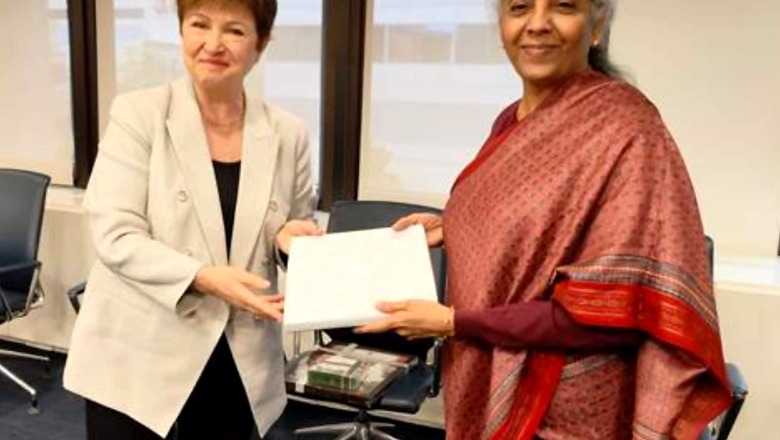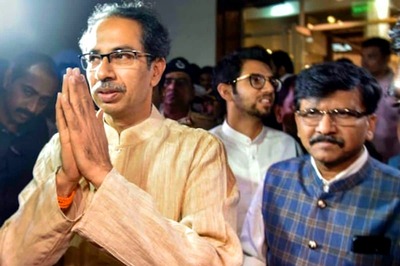
views
The global economic outlook has “darkened significantly” in the past few months and the world faces an increasing risk of recession in the next one year, said IMF Managing Director Kristalina Georgieva. She added that the commodity price shock after the Russia-Ukraine war exacerbated the cost-of-living crisis for people and it is “only getting worse”.
“When the G20 last met in April, the IMF had just cut its global growth forecast to 3.6 percent for this year and next—and we warned this could get worse given potential downside risks. Since then, several of those risks have materialized—and the multiple crises facing the world have intensified,” she said in a blogpost.
The latest US inflation data showed that consumer prices there jumped 9.1 per cent year-on-year in June, on account of high prices for gas, food and rent. This is the biggest 12-month increase since 1981, and up from an 8.6 per cent jump in May. On a monthly basis, prices rose 1.3 per cent from May to June, another substantial increase, after prices had jumped 1 per cent from April to May.
“Inflation is higher than expected and has broadened beyond food and energy prices. This has prompted major central banks to announce further monetary tightening—which is necessary but will weigh on the recovery. Continuing pandemic-related disruptions—especially in China—and renewed bottlenecks in global supply chains have hampered economic activity,” Georgieva said.
The International Monetary Fund’s MD added that recent economic indicators imply a weak second quarter — and “we will be projecting a further downgrade to global growth for both 2022 and 2023 in our World Economic Outlook Update later this month”.
She also said the outlook remains extremely uncertain. Think of how further disruption in the natural gas supply to Europe could plunge many economies into recession and trigger a global energy crisis. This is just one of the factors that could worsen an already difficult situation.
“It is going to be a tough 2022—and possibly an even tougher 2023, with increased risk of recession,” Georgieva said in the blogpost.
She has highlighted three priorities: Countries must do everything in their power to bring down high inflation; fiscal policy must help – and not hinder – central bank efforts to bring down inflation; and a fresh impetus is needed for global cooperation led by the G20.
On inflation, she said “persistently high inflation could sink the recovery and further damage living standards, particularly for the vulnerable. Inflation has already reached multi-decade highs in many countries, with both headline and core inflation continuing to rise”.
A total of 75 central banks, about three-quarters of the central banks the IMF tracks, have raised interest rates since July 2021.
Countries facing elevated debt levels will also need to tighten their fiscal policy. This will help reduce the burden of increasingly expensive borrowing and—at the same time—complement monetary efforts to tame inflation. “Over the medium-term, structural reforms are also crucial to bolster growth: think of labor market policies that help people join the workforce, especially women,” she said.
Read all the Latest News, Breaking News, watch Top Videos and Live TV here.


















Comments
0 comment